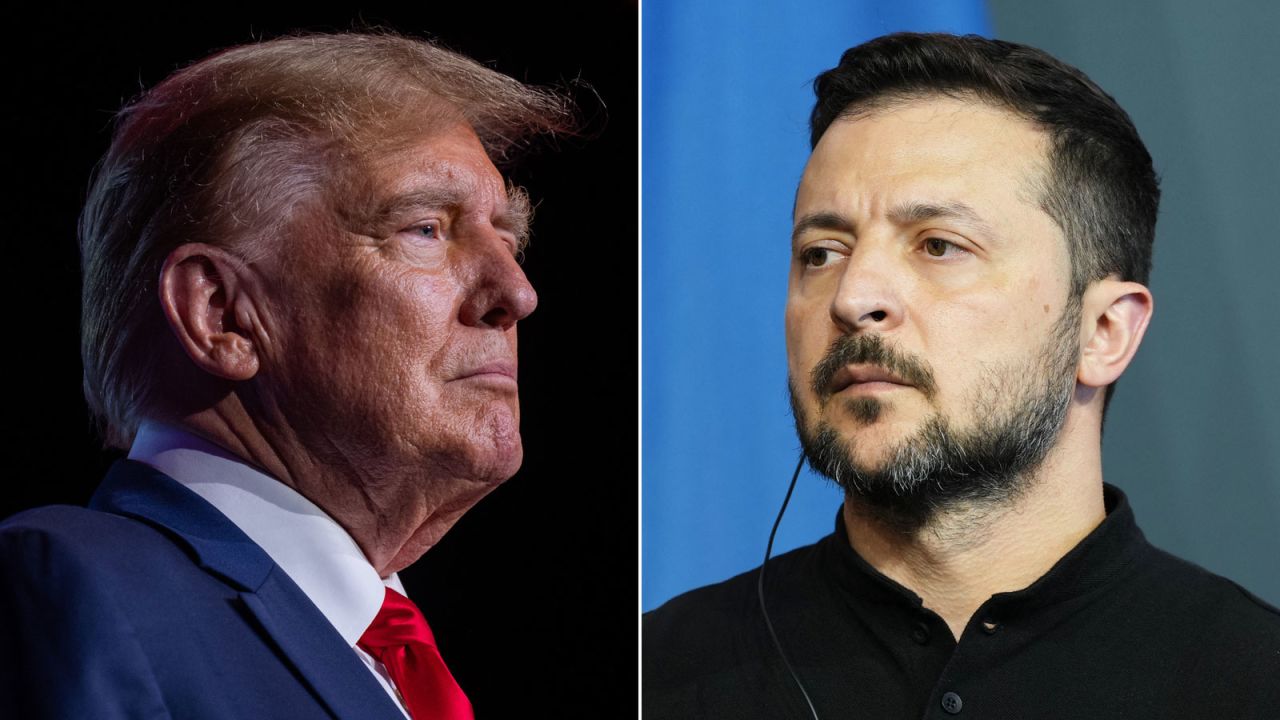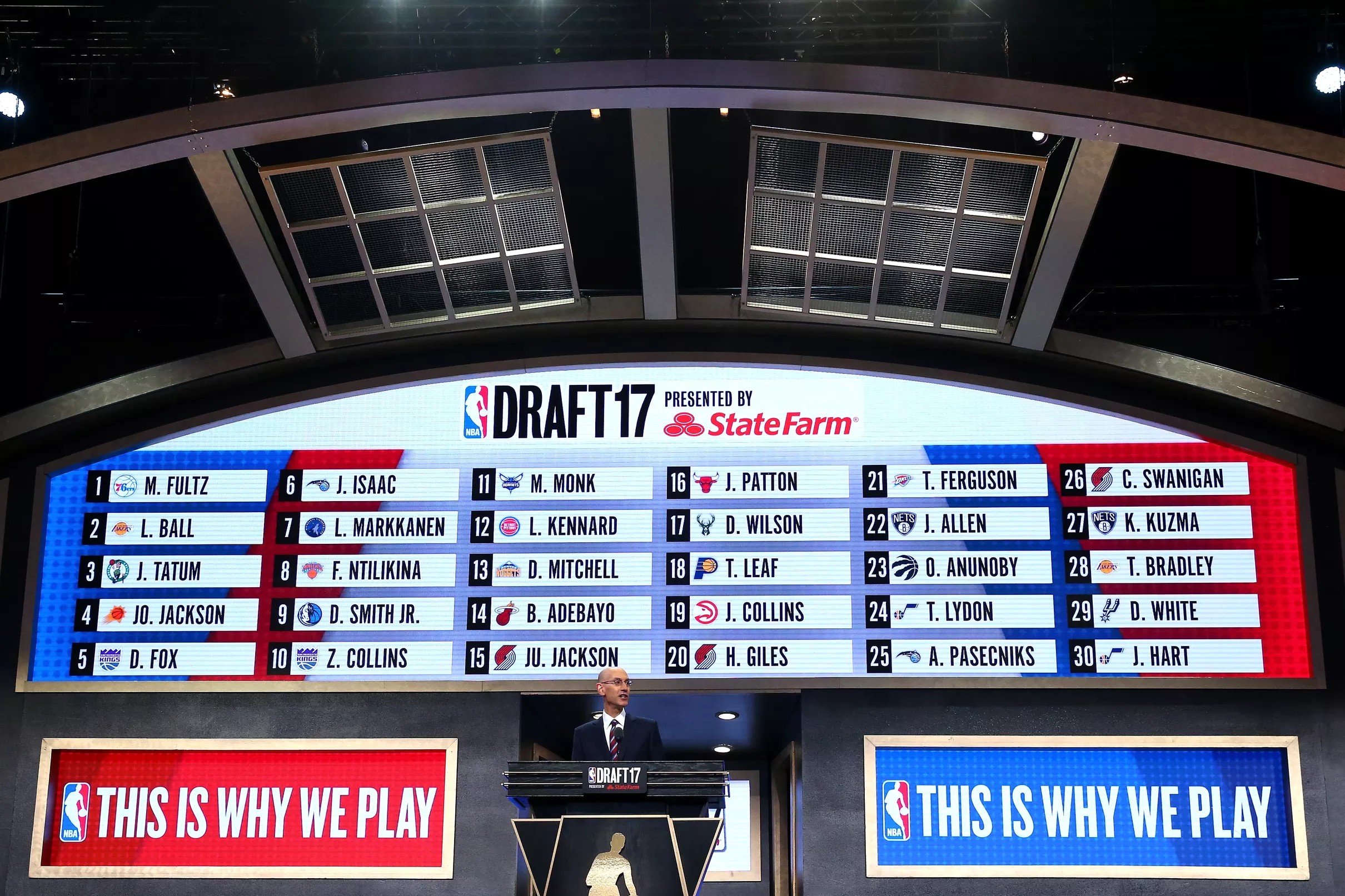Ukraine Peace Talks: Zelensky Seeks Trump's Involvement

Table of Contents
The ongoing conflict in Ukraine has taken a surprising turn with President Volodymyr Zelenskyy's recent suggestion that former US President Donald Trump could play a role in brokering peace talks. This unprecedented move raises crucial questions about the potential benefits and drawbacks of such involvement, the implications for international relations, and the complexities of achieving a lasting resolution to the war. The very idea of Trump, a figure known for his unconventional approach to diplomacy, mediating a conflict of this magnitude is sparking intense debate and analysis worldwide. This article will delve into the various facets of this unexpected development, examining the potential benefits, risks, and the path forward for Ukraine peace talks.
Zelenskyy's Rationale: Why Trump?
President Zelenskyy's decision to suggest Donald Trump's involvement in the Ukraine peace process is shrouded in speculation, but several factors likely contributed to this unconventional choice.
-
Trump's past relationship with Putin (potential leverage): Trump's past interactions with Russian President Vladimir Putin, however controversial, could potentially offer a unique channel of communication. Some believe this pre-existing relationship, however fraught, could provide leverage in negotiations. The perceived understanding between the two leaders might facilitate direct dialogue, cutting through the complexities of traditional diplomatic channels.
-
Perceived ability to negotiate independently of established diplomatic channels: The current diplomatic efforts, while significant, have faced roadblocks. Zelenskyy may perceive Trump's ability to operate outside the established norms of international diplomacy as a potential advantage, potentially bypassing bureaucratic hurdles and entrenched positions.
-
A desire to bypass current administration's perceived limitations: Zelenskyy might believe that the current US administration faces limitations in negotiating with Russia, either due to political constraints or perceived lack of willingness to engage in certain concessions. Trump's independent stance might be seen as a way to circumvent these perceived limitations.
-
Public opinion manipulation and garnering support: Invoking Trump's name, regardless of the outcome, could generate considerable media attention and potentially sway public opinion both domestically and internationally, potentially garnering support for a particular negotiating stance.
The impact on US-Ukraine relations remains uncertain. While it could strengthen ties if successful, it risks further straining the relationship if the initiative fails or is perceived negatively by the current administration and its allies. Many political analysts are divided on the wisdom of this move, highlighting the unpredictable nature of Trump's involvement.
Potential Benefits of Trump's Involvement
While highly controversial, Trump's involvement in Ukraine peace talks presents some potential benefits, primarily stemming from his unconventional negotiating style.
-
Unconventional approach could break diplomatic stalemates: Traditional diplomatic efforts have been largely unsuccessful in ending the conflict. Trump's willingness to deviate from established protocols might offer a fresh perspective and potentially break existing stalemates. His unpredictable nature could be used to advantage, forcing concessions that wouldn't be possible through conventional means.
-
Potential for direct communication with Putin: Trump's established, albeit controversial, relationship with Putin could facilitate direct communication, bypassing intermediaries and potentially accelerating the negotiation process. This direct line of contact could be crucial in achieving a rapid resolution to the conflict.
-
Possibility of securing concessions not achievable through traditional diplomacy: Trump's willingness to take risks and engage in unconventional tactics might allow him to secure concessions that have eluded traditional diplomatic efforts. This could involve making compromises that other negotiators have been unwilling to consider.
However, it’s crucial to analyze these potential positives with a degree of caution. While unconventional tactics might be beneficial, they also carry immense risk.
Challenges and Risks of Trump's Involvement
The potential downsides of involving Trump in the Ukraine peace talks are significant and cannot be overlooked.
-
Trump's controversial past statements and actions regarding Russia: Trump's past statements expressing admiration for Putin and downplaying Russia's aggression raise concerns about his impartiality and commitment to Ukraine's interests. This lack of trust could undermine his effectiveness and credibility in negotiations.
-
Potential for undermining existing diplomatic efforts: Trump's involvement could potentially disrupt and undermine the existing diplomatic efforts led by various international bodies and governments. This could create confusion and hinder progress towards a peaceful resolution.
-
Risk of exacerbating tensions and hindering peace negotiations: Trump's unpredictable behavior and propensity for public pronouncements could easily exacerbate tensions and make it harder to achieve a lasting peace. His interventions could derail carefully crafted strategies.
-
Legal and ethical concerns regarding potential conflicts of interest: Concerns exist regarding potential conflicts of interest given Trump's business dealings and past associations. These ethical considerations must be thoroughly investigated and addressed before any involvement.
International Reaction and Public Opinion
The international response to Zelenskyy's suggestion has been mixed. The US government has yet to officially comment, while other world leaders have expressed reservations, emphasizing the need for a unified diplomatic approach.
-
Reactions from the US government and other world leaders: Many Western leaders have expressed concerns, highlighting the potential for undermining existing efforts. Some are openly skeptical of Trump's suitability for such a critical role.
-
Public opinion polls and surveys in Ukraine and other countries: Public opinion varies considerably. While some in Ukraine may see Trump as a potential wildcard, others express deep distrust given his past rhetoric. International polls reflect similar divisions.
-
Media coverage and public discourse on the issue: The media coverage has been extensive, with commentators expressing a broad range of opinions, from cautious optimism to outright condemnation. The debate reflects the complex and controversial nature of this proposal.
The influence of public opinion on peace talks is undeniable. Positive public perception is crucial for maintaining momentum and securing necessary support from various stakeholders.
The Path Forward: Navigating Complexities in Ukraine Peace Talks
Before considering Trump's involvement, a thorough assessment is crucial:
-
Thorough risk assessment and due diligence: A careful evaluation of the potential benefits and risks is essential. This should include assessing the legal and ethical implications and the potential impact on existing diplomatic efforts.
-
Establishing clear parameters and limitations: If Trump is to be involved, clear parameters and limitations on his role must be established to ensure alignment with international goals and prevent unintended consequences.
-
Collaboration with existing diplomatic efforts: Any involvement by Trump should be carefully coordinated with existing diplomatic initiatives to avoid undermining ongoing negotiations.
-
Transparency and accountability throughout the process: Transparency and accountability are crucial to maintaining public trust and ensuring the process is legitimate and effective.
Alternative strategies, such as focusing on strengthening existing diplomatic efforts and increasing pressure on Russia through sanctions and military aid, should also be considered. Expert analysis suggests that a multifaceted approach involving multiple stakeholders is more likely to yield sustainable results.
Conclusion
President Zelenskyy's call for Donald Trump's involvement in Ukraine peace talks represents a high-stakes gamble. While it offers the potential for unconventional breakthroughs, it also carries significant risks and challenges. The international community must carefully weigh the potential benefits against the potential drawbacks before considering this unconventional approach. The potential for derailing existing diplomatic efforts and exacerbating tensions is substantial.
Call to Action: The future of Ukraine peace talks hinges on strategic decision-making. Stay informed on developments surrounding the role of Donald Trump and the ongoing efforts to achieve a lasting peace in Ukraine. Continue following our coverage for the latest updates on Ukraine peace talks and the evolving dynamics of this critical situation.

Featured Posts
-
 Nba Draft Lottery Rules Explained A Comprehensive Guide
May 13, 2025
Nba Draft Lottery Rules Explained A Comprehensive Guide
May 13, 2025 -
 Byd Targets Brazil Fords Fading Influence Opens Door For Ev Expansion
May 13, 2025
Byd Targets Brazil Fords Fading Influence Opens Door For Ev Expansion
May 13, 2025 -
 Lara Croft Tomb Raider The Cradle Of Life Legacy And Impact
May 13, 2025
Lara Croft Tomb Raider The Cradle Of Life Legacy And Impact
May 13, 2025 -
 Ethan Slaters Role In Elsbeth Season 2 Episode 17 Explained
May 13, 2025
Ethan Slaters Role In Elsbeth Season 2 Episode 17 Explained
May 13, 2025 -
 Protracted Nightmare The Plight Of Hostage Families In Gaza
May 13, 2025
Protracted Nightmare The Plight Of Hostage Families In Gaza
May 13, 2025
